Editor's note: in September 2020 it was announced that Kyms would not reopen after the pandemic closedown.
Kym’s is the sister restaurant of A. Wong, opening in early October 2018 at street level in the Bloomberg Arcade. Kym’s, incidentally, was the original name of the family-run restaurant in Wilton Road that changed its name to A. Wong when Andrew Wong took it over; Kym was the name of Andrew’s grandmother. The restaurant has a raised bar area, a main dining room and further seating upstairs. A large artificial cherry tree dominates the bar area, and there is an open kitchen. The head chef is Jimi Tegerdine, who most recently was executive chef of the punctuation-ally challenged restaurant “LeVeL 33” in Singapore, and having previously worked at Cho Gao in Melbourne and The Relais de Coche in France.
The menu format at Kym’s is a little different from A. Wong, with none of the dim sum that the parent restaurant is now particularly noted for. The emphasis here is more on meat dishes and sharing plates, though there are some options for the non-carnivorous. There was a short wine list of 16 labels, ranging from £28 to £90 with a median price of £52 and average markup of a hefty 3.4 times retail price. Example bottles were Assyrtiko Lyarakis 2017 from Crete at £36 for a wine that you can find in the high street for £13, Luigi Bosca Malbec 2014 at £50 compared to its retail price of £17, and Ridge East Bench Zinfandel at £90 for a bottle that will set you back £31 in a shop. Alternatively, Tsing Tao was £5 amongst a choice of ten different beers, there were five sakes on offer, and jasmine tea was £3 a pot.
Tiger prawn skewers (£8) were coated in what amounted to a prawn cracker and came with a pineapple and sweet chilli dip. The prawns themselves were good quality and were nicely cooked, the cracker bringing a contrasting texture and the dip being quite clean tasting compared to the cloying variety that are all too often found in Chinese restaurants (14/20).
A lemongrass salad (£5.50) seemed rather minimalist, with some lettuce leaves, peanuts and a little lemongrass, chill and lime, though the salad tasted to me mostly of the lettuce and peanuts, so could have had more spicy kick (12/20). Wild mushroom steamed bao (£6) had light texture and had quite a lot of mushroom flavour (14/20). Pork and shrimp “Bao bao” (£12) came with fried egg, pat chun (black rice vinegar) and crispy chilli. This was the star dish of the meal, the dumplings having excellent flavour that was nicely enlivened by the chilli and vinegar. This was a hearty, warming dish ideal for a cold day like this (15/20).
Crispy duck (£18) came with pancakes in a bamboo steamer, and plum sauce that could be applied to the pancakes with a little brush. The duck was nicely presented and pulled easily apart, cooked less than in so many Chinatown places, where it can often arrive grey. The pancakes were light and the plum sauce subtler than many (14/20). Three treasures (£20) is a classic Cantonese dish of three meats: crisp pork belly, soy chicken and barbecued pork char siu, in this case using Iberico pork. There was a condiment for each and the pork skin was quite crispy, the belly not too fatty. I ate this dish quite a lot on a recent trip to Shanghai, and the version here stood up well in comparison (14/20).
Gai lan (£8) came with soy and goji berries. The broccoli was quite tender and a good companion to the rich three treasures dish (14/20). Uyghur fries (£4) came with Thai shallots and mango powder. Uyghur cuisine is from Xinziang province in the north west of China, the cooking having roots in Turkish and central Asian traditions. I wasn’t particularly dazzled by this dish, which was essentially shoestring fries with some mango powder; it was pleasant enough but seemed less exotic in reality than the name promised (12/20).
Pineapple bun was bought in from a bakery in Chinatown and served with what was notionally a coffee mousse. The bun itself was reasonably light but the mousse was odd, tasting to me not at all of coffee, and not being an obvious foil for the bun. This dessert is not to be confused with a dish called a “pineapple bao”, a savoury pork bun that I recently ate in China, which is named after this sweet dessert.
Service was good, the waiters being quite attentive. The bill, with just water and tea to drink, came to £59 though that was for plenty of food. If you shared a modest bottle of wine but ordered a bit more carefully than we did then a typical cost per head might be around £65. Overall I enjoyed Kyms, with its interesting menu and smart dining room. It didn’t have quite the culinary magic of the dim sum at A. Wong, but then the two places are aiming at different audiences. There were one or two off notes but then the restaurant has only been open for a few weeks, and such early kinks can easily be ironed out.






















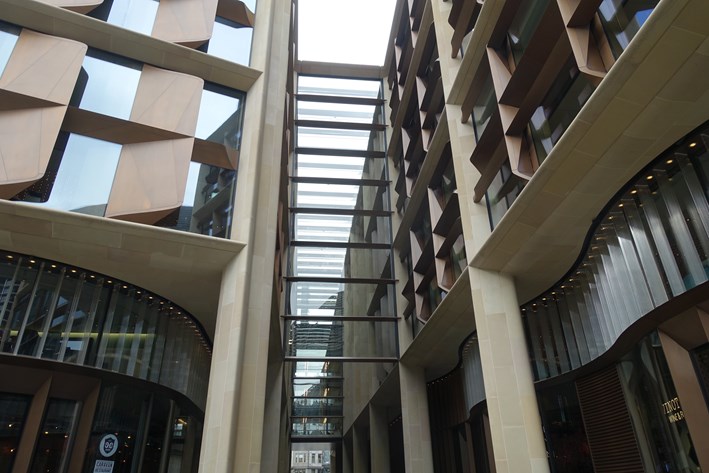
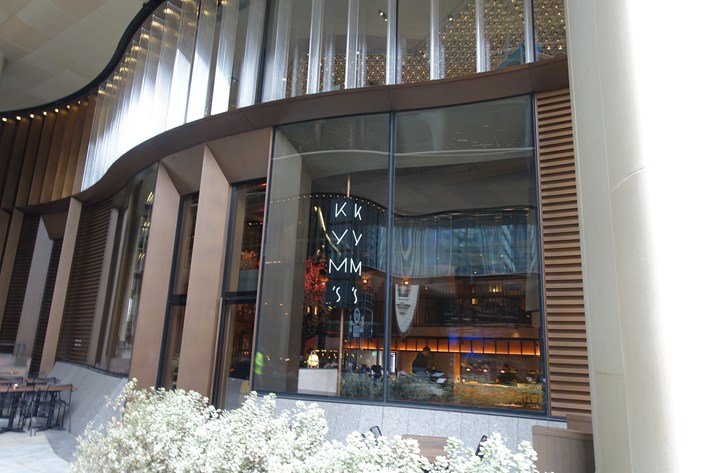
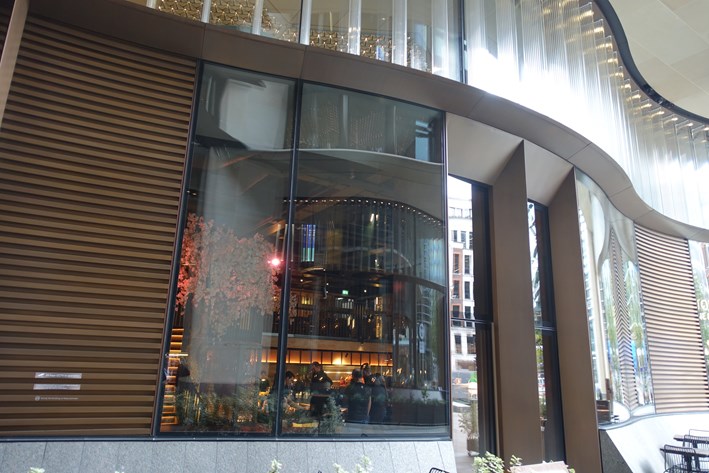
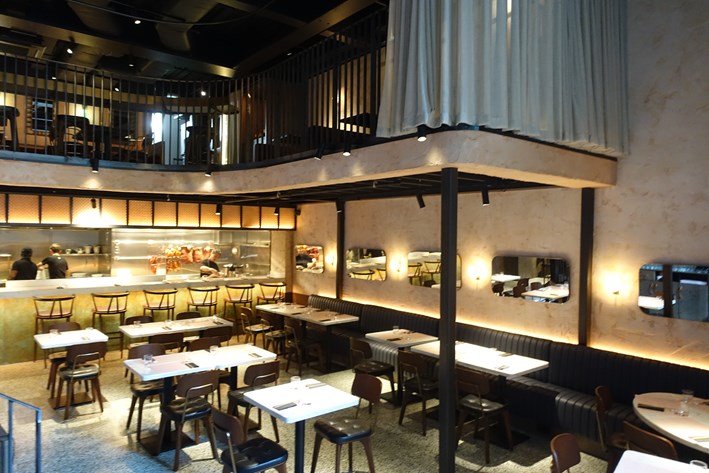
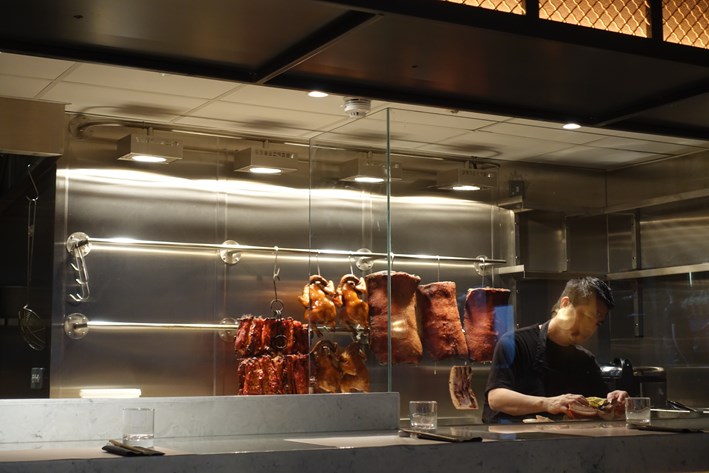
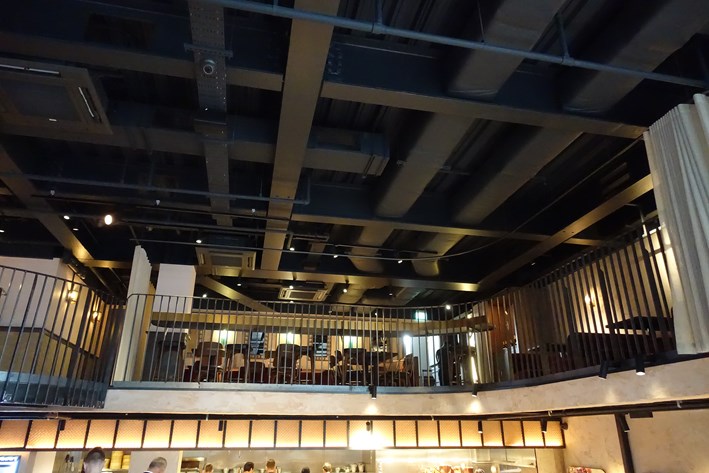
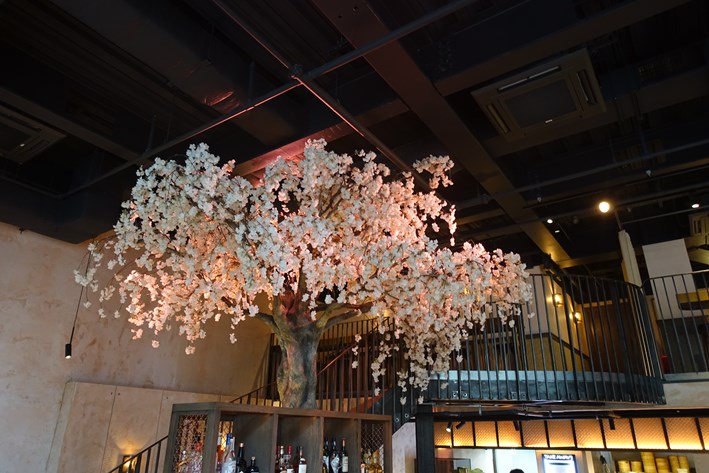
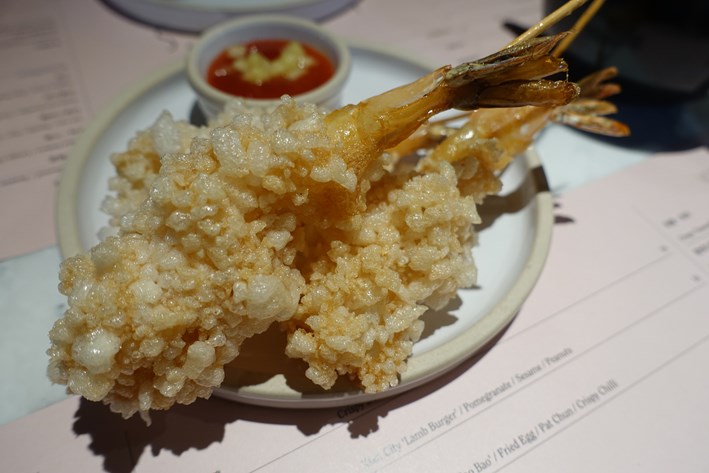
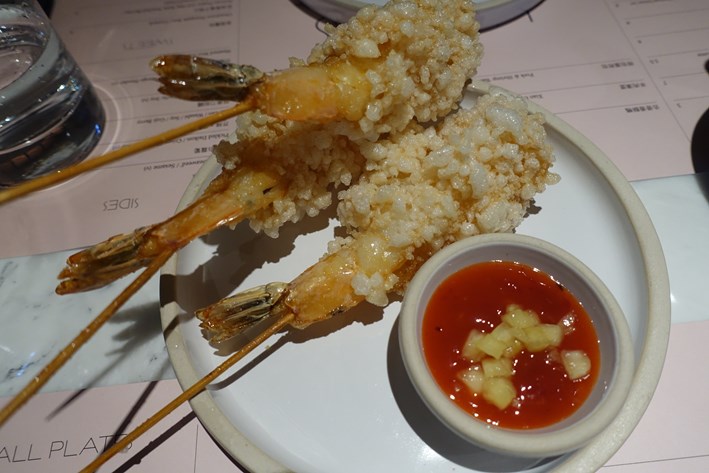
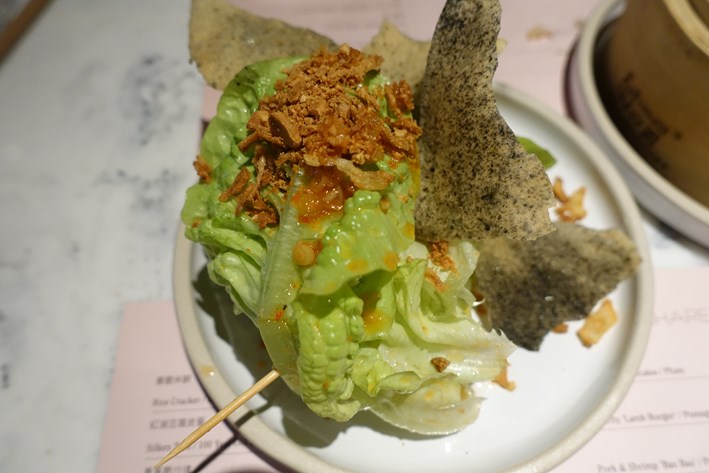
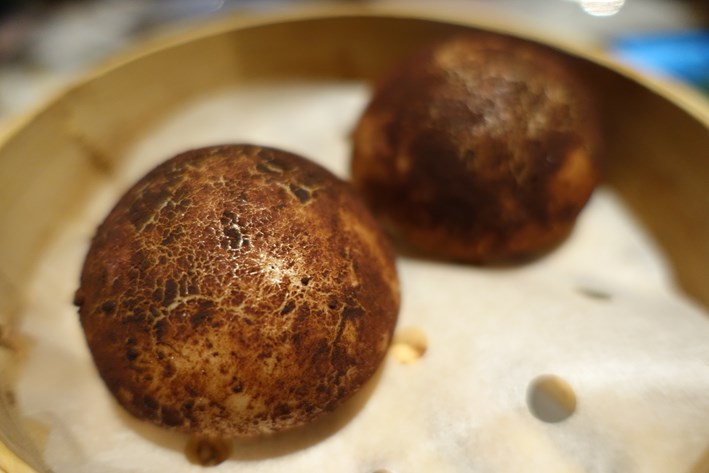
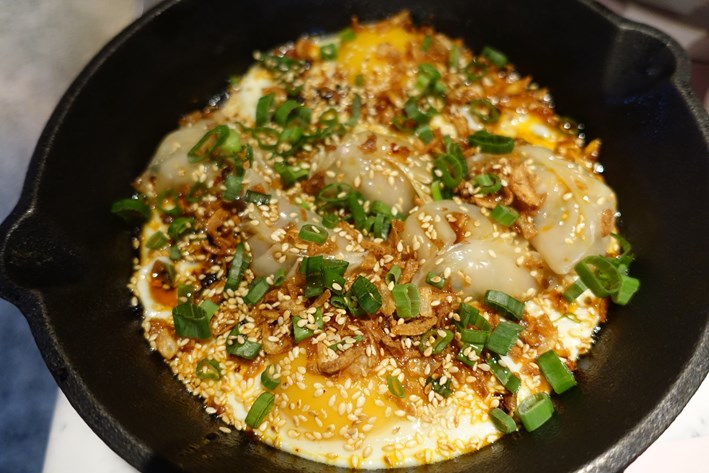
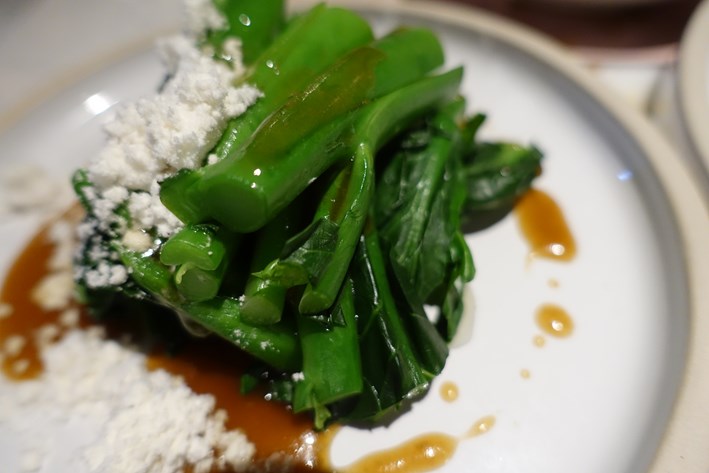
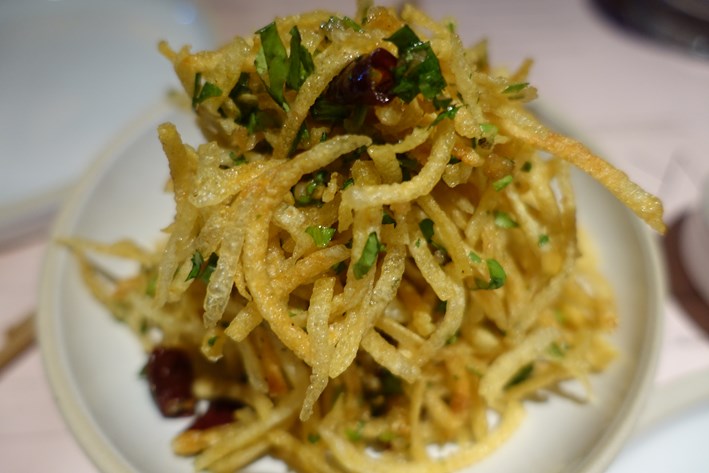
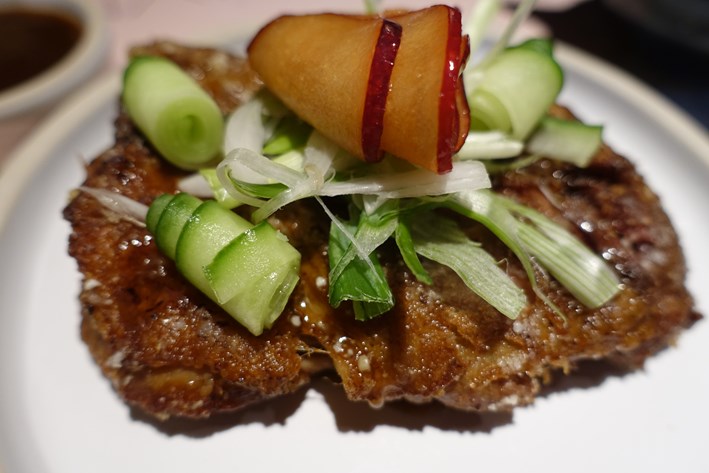
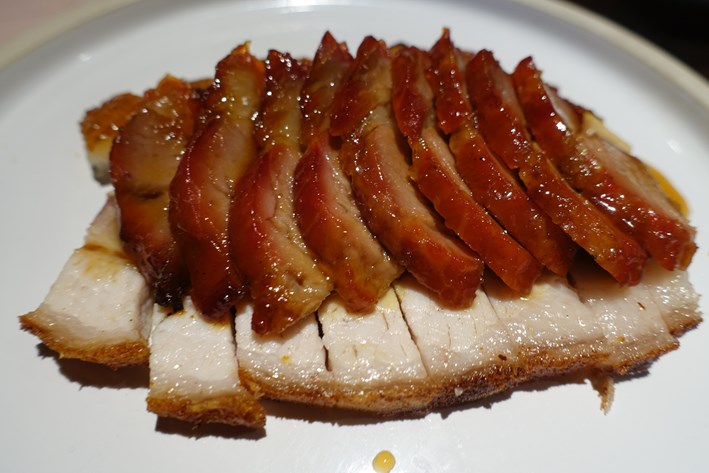
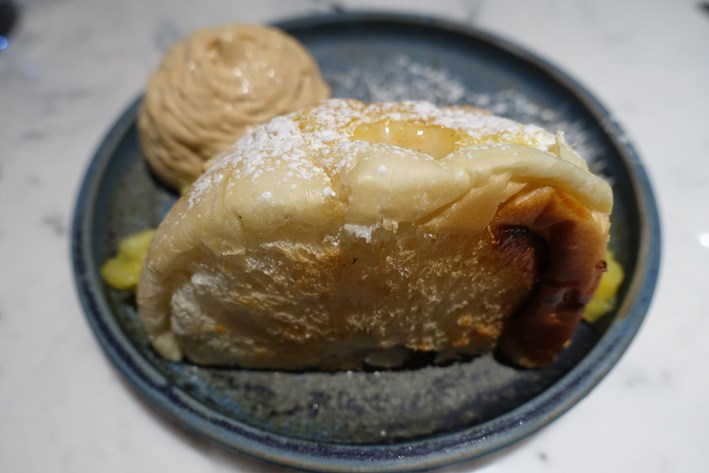

Add a comment
Thank you for submitting your comment, this will be checked and added to the website very soon.
User comments